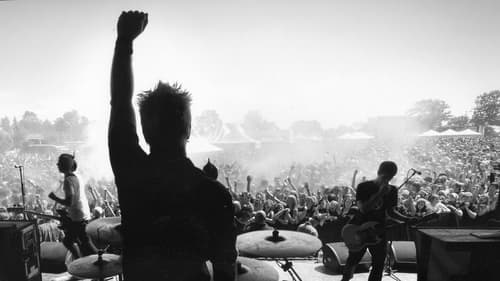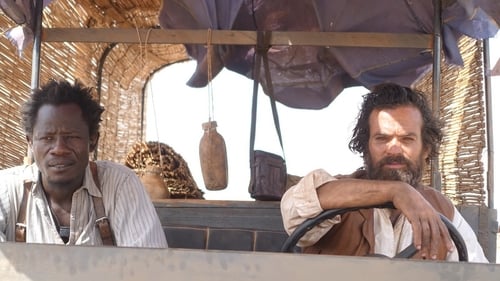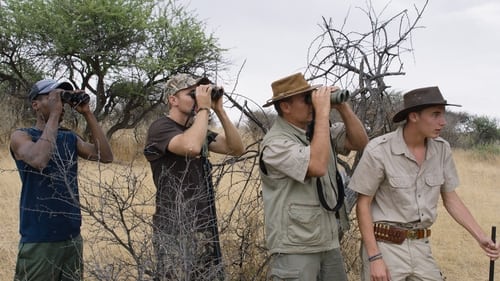In the Shadow of the Sun (2012)
장르 : 다큐멘터리
상영시간 : 1시간 28분
연출 : Harry Freeland
시놉시스
It is not easy to be an albino in Tanzania. White skin is distinguishable and it burns quickly under the African sun. However, the constant fear is by far the worst part. According to local superstition, albino body parts bring wealth and luck; hence witch doctors pay generously for a leg or an arm.

Remember the culture clash in THE GODS MUST BE CRAZY? This time it's real. One of the most ancient cultures on our planet is undergoing a major change. The Ju/Hoansi Bushmen in Namibia are not allowed to hunt anymore and need to converge with our so called “civilized” lifestyle. For the first time the Ju/Hoansi Bushmen travel through the Kalahari and then right into the heart of Europe. What starts as a look at their fascinating culture becomes an even more fascinating look at our Western lifestyle. A warm and humorous reflection of our habits through the eyes of people who are about to give up their million year old traditions.

This is the story about a rediscovered two-faced diamond mask. Stolen from Africa some 300 years ago, the mask surfaces in the hands of Texas resident Dr. Dye Oppenheimer (Joe Grisaffi). When Oppenheimer decides to exhibit the artifact, geologist and anthropology professor Dr. Catherine "Cat" Ileka (Kae Shakir) and her friend Sweetwater Brown (Perez Egbi) confront Dr. Oppenheimer and his accomplice Jesse Holland (Ramsey Nouah) about the mask's origin. They then attempt to steal the mask and take it back to Africa.

This story humorously uses different events to explore the habit of late coming among Africans. While addressing some of the challenges that several Africans face with being on time, the story also unveils how to combat the infamous African Time. Ironically, many Africans that are late to various social events are seldom late to work and other self-benefiting engagements.

In a town where blood thirsty militant subject making life simply unbearable, it is difficult to know when you will wake up to a brilliant morning sunshine which promises a day of solemnity. In the wake of the seeming normalcy of a capricious life, a new regime is established in Kimbala town: a superlative regime of Yusuf Mombasa. Thirstier and fiercer than his predecessors, the people of Kimbala are dumb by his ruthlessness. The strongest of men are hit down to noting more than murmur. The influential are coiled in their shells in total stillness and the civilians hide behind hypocritical facet of patriotism. Who will dare stop Mombasa? ( Chris Twum )

Beyond Barricades is a documentary on political punk band Anti-Flag, featuring interviews with Tom Morello, Billy Bragg, Tim McIlrath, Brian Baker & More. The film explores the trials and tribulations of playing politically charged music and devoting your life to activism.

Ebola hunters stomp out the Ebola virus.

Freedom, Nigeria's contribution to the 1957 Berlin Film Festival, was based on a play commissioned by the Moral Re-Armament Association. Based on a stage piece, the film is an unabashed paean to the MRA, demonstrating how the organization helped to check British colonialism and radical insurrection in Nigeria and bring peace to the troubled country. Subtlety is not the film's strong suit, and as a result the film seems at times to be a self-parody. Reportedly the first African production to be lensed in color, Freedom benefits from the cinematographic expertise of Scandinavia's Richard Taegstrom and Aimo Jaederman. The film was enthusiastically received at the Berlin festival, but fared less well when released internationally.

The story of Badr, a young veterinarian, and his brother in law ‘Essaam, their desire for success and the seeming good fortune they encounter. Their life turned upside down when they get news that they have inherited a Zoo from Badr's uncle in South Africa. Badr and ‘Essaam fly to South Africa where they meet Gameela, Badr's niece, they find that the zoo is facing many problems. Badr, ‘Essaam, and Gameela face such challenges as vicious lion attacks, greedy bankers, treacherous relatives, with the help of Shaaker the father's lawyer and Adam, the loyal family employee.

This film depicts a moment of flirtation between N!ai, the young wife of /Gunda, and her great-uncle /Ti!kay. The two share a "joking relationship," a Ju/'hoan kin relationship which provides opportunities for casual intimacy, emotional release, and support.

A filmmaker witnesses an act of racist police violence in Paris. He discusses with a friend whether and how he should make a film out of this.

Feature version of The Lost City (1920), a fifteen episode serial.

In northern Morocco lies the Spanish enclave of Melilla: Europe on African Land. On the mountain above live over a thousand hopeful African migrants, watching the land border, a fence system separating Morocco and Spain. Abou from Mali is one of them – the protagonist in front of the camera, as well as the person behind it. For over a year, he has ceaselessly persisted in attempting to jump the fence.

The Ebola outbreak in West Africa seen through the eyes of the local populations, village officials, aid workers, the sick and those who recovered.

This action thriller narrates the tale of Gunpowder (RMD) and Timipre (Olu Jacobs), two natives of Oloibiri, the town where oil was first discovered in commercial quantity in Nigeria. Gunpowder engages in violent struggle in protest to the squalid living conditions in his community despite their oil wealth; accusing Timipre’s generation of doing nothing whilst their land was exploited and plundered. (Amarachukwu Iwuala)

In the early 1920s, Georges Laffont, traumatized by the horrific trench warfare, decides to leave his life behind and travel to West Africa. In the vast territories of Upper Volta he - with the help of Diofo, artist and also survivor of the Great War - try to recruit the villagers as labor for plantations in Ghana. But his adventure leads him to a dead-end, and he comes back to Paris desperate to find his place in the world.

Africa. In the wild expanses, where bush-bucks, impalas, zebras, gnus and other creatures graze by the thousands, they are on holiday. German and Austrian hunting tourists drive through the bush, lie in wait, stalk their prey. They shoot, sob with excitement and pose before the animals they have bagged. A vacation movie about killing, a movie about human nature.

This uneven and uninspired documentary of Africa is a collection from various stock footage. Female dancers in mod clothes dance on the Eiffel Tower in comparison to the primitive dances of native Africans. A lone runner trains for a marathon, and a few animals are shown in their natural habitat. Commentary and modern jazz and pop music help to make this seem much longer than 66 minutes.

Men and women of the !Kung people in Ojokhoe, Namibia perform healing dances by firelight. First we see men perform the giraffe dance, and then women perform the !gwa dance.

The African pioneer Edouard Sailly created a distinctive poetic cinema. Here, he ponders the state of mind of a mourning fisherman.

유인원 전문가 ‘데이비스(드웨인 존슨)’는 사람들은 멀리하지만, 어릴 때 구조해서 보살펴 온 영리한 알비노 고릴라 ‘조지’와는 특별한 감정을 공유한다. 어느 날, 유순하기만 하던 조지가 의문의 가스를 흡입하면서 엄청난 괴수로 변해 광란을 벌인다. 재벌기업이 우주에서 무단으로 감행한 ‘프로젝트 램페이지’라는 유전자 조작 실험이 잘못되면서 지구로 3개의 병원체가 추락했던 것. 조지뿐만 아니라 가스를 마신 늑대와 악어 역시 변이시키고 끝도 없이 거대해진 이들 포식자들이 도심을 파괴하며 미국 전역을 쑥대밭으로 만들어 놓는다. 데이비스는 괴수들을 상대로 전지구적인 재앙을 막고 변해버린 조지를 구하기 위한 해독제를 찾아야만 하는데…










